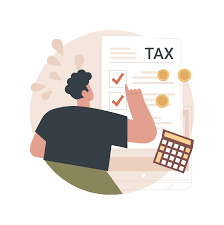The tax audit criteria for showrooms can vary based on several factors, and the exact methods used can differ from one jurisdiction to another. Tax authorities aim to identify businesses that might have a higher likelihood of non-compliance or discrepancies in their tax reporting.
While I can’t provide the most up-to-date information as of 2023, I can outline some general criteria that might be considered:
1. Random Selection:
In some cases, tax authorities might randomly select businesses for audit to maintain fairness and prevent predictability.
2. Risk Assessment:
Tax authorities often employ risk assessment models that analyze various factors to determine the likelihood of non-compliance. These factors can include business type, industry, past compliance history, financial ratios, and anomalies in financial statements.
3. Size of Business:
Larger businesses or those with significant financial transactions often scrutinized more due to the potential for complex financial structures and higher potential for errors or manipulation.
4. Comparative Analysis:
Tax authorities might compare a business’s financial data against industry benchmarks or other similar businesses to identify outliers that could indicate potential tax evasion.
5. Inconsistencies and Anomalies:
Audits may be triggered by discrepancies between different tax forms, such as inconsistencies between sales reported on VAT returns and income reported on income tax returns.
6. Tip-offs and Whistleblower Reports:
Sometimes, tax authorities receive tips or reports from employees, competitors, or other sources that indicate potential non-compliance.
7. Special Industry Focus:
Certain industries that are deemed to have a higher risk of tax evasion might be subject to more frequent audits. For example, cash-intensive businesses like restaurants and retail stores could target.
8. Geographical Location:
Businesses operating in areas with historically higher instances of tax evasion might face more scrutiny.
9. Frequency of Changes:
Frequent changes in business structure, ownership, or financial practices might trigger audits to ensure compliance with tax regulations.
10. Previous Non-Compliance:
Businesses with a history of non-compliance or errors in their tax reporting are more likely to be audited.
11. High Value Transactions:
Unusually large or complex transactions might raise red flags and lead to closer examination.
It’s important to note that tax authorities aim to strike a balance between enforcing compliance and avoiding unnecessary burdens on businesses. Audits serve to ensure that businesses are accurately reporting their income and paying the appropriate taxes, thereby maintaining the integrity of the tax system. The specific criteria and methods used for selecting businesses for audit can evolve over time based on changing regulations, technologies, and priorities of the tax authority.
FAQs:
To visit: https://www.incometax.gov.in
For further details access our website: https://vibrantfinserv.com
